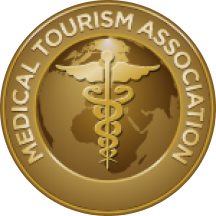Key takeaways:
The price for Organic hair transplantation in Turkey ranges between £1 380 - £4 170.
The Organic hair transplantation offers include:
Factors influencing the cost include the clinic’s location, the expertise of the medical team, and the included amenities.
| Organic hair transplantation | from £3 500 | from £3 380 |

Viktoriia Ripa, medical editor
This content conforms to the Editorial Policy of Bookimed UK and has been medically reviewed by Viktoria Ripa, a professional dentist. She coordinates care for international patients seeking dental and plastic surgery treatments at Bookimed UK.
Before undergoing an organic hair transplant in Turkey, patients are typically required to undergo several preparatory steps to ensure the best outcomes:
An organic hair transplant procedure in Turkey generally lasts between 4 to 8 hours, depending on the extent of the transplant required.
The recovery period after an organic hair transplant is relatively quick. Most patients can return to work and other normal activities within a few days post-surgery. However, full healing and hair growth can take several months to be noticeable.
While organic hair transplantation is generally safe, like any surgical procedure, it carries certain risks:
Post-operative care for an organic hair transplant includes:
Patients typically can return to work within 2-3 days post-operation, depending on the nature of their work and the extent of the surgery.
Usually, about three follow-up appointments are recommended within the first six months after the surgery to ensure proper healing and satisfactory hair growth.
Post-operative medications may include painkillers and antibiotics. While there’s no specific diet, a healthy, balanced diet can aid in faster recovery.
If any complications or unusual symptoms arise, it’s crucial to contact the transplant clinic immediately for advice and potential treatment.
The cost of an organic hair transplant in Turkey is approximately £4275. This price generally includes the surgery, a three-day hotel stay, and VIP transfers. However, it may not cover personal expenses and post-operative medications.
Pain and discomfort, typically mild, can be effectively managed with prescribed pain relief medications and by following the surgeon’s care instructions closely.
Patients are advised to avoid strenuous activities and direct sunlight exposure for a few weeks post-surgery. Travel can usually be resumed within a few days, depending on individual recovery.
Organic hair transplantation aims to minimize visible scarring; however, slight scarring at the donor site may be unavoidable. These are generally concealable and fade over time.





Bookimed is an international medical tourism platform founded in 2014. We are made of people and for people — and that’s our core value. We cooperate with simply the best doctors & clinics and work hard every day to make people healthier and happier. Over 800,000 patients used the platform so far. Additionally to our primary activities, we collaborate with charity projects and create supportive communities. Our main office is in Kyiv, Ukraine, still, we’re online 24/7 wherever you are.
The information provided on the website is not a guide to action and should not be construed as medical advice or treatment recommendation, nor should it be considered a substitute for a visit to a doctor.